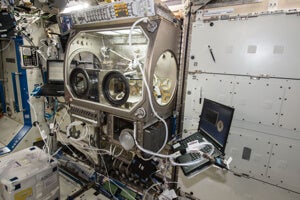Google, a long-time supporter of Singularity University (SU), has agreed to a two-year, $3 million contribution to SU’s flagship Graduate Studies Program (GSP). Google will become the program’s title sponsor and ensure all successful direct applicants get the chance to attend free of charge.
Held every summer, the GSP’s driving goal is to positively impact the lives of a billion people in the next decade using exponential technologies. Participants spend a fast-paced ten weeks learning all they need to know for the final exam—a chance to develop and then pitch a world-changing business plan to a packed house.
Google is, of course, no stranger to moon shot thinking and the value of world-shaking projects.
Under the new agreement, Google will provide $1.5 million a year over the next two years. The funding covers the cost to attend for half of the 80 annual GSP participants. The other half, winners of SU’s Global Impact Competitions, will continue to be offered a free spot at the program as well.
Rob Nail, CEO and associate founder of Singularity University, was himself a graduate of an SU program. The experience, he says, was life changing. And now, more exceptional individuals will have the same opportunity.
“The new agreement with Google is an incredibly important pillar in our efforts to increase global access and diversity for qualified candidates, regardless of their ability to pay,” said Nail. “Google’s support will further help to break down barriers of access to the Silicon Valley network of technologists, business leaders, and investors.”
We’ve covered GSP since the beginning. It’s an energy-packed program.
Participants must first get a handle on the world’s biggest challenges—food, education, water, security, global health, energy, environment, poverty, and space—and then learn the technological levers to tip the balance. Using exponential technologies, like artificial intelligence, robotics, biotechnology, and 3D printing, they must develop a viable business plan to positively impact a billion people in ten years.

Exciting new startups conceived at GSP include Made In Space, whose low-gravity 3D printer made history last year by fabricating the first manufactured products in space, and Miroculus, whose microRNA device enables quick, non-invasive, and affordable detection of diseases like cancer.
Bibak has developed an effective and inexpensive landmine detector. Hivematic created a beehive monitoring system to optimize hive conditions real-time and reduce the risk of colony failure. And Matternet is working on a network of drones to bring medicine and other critical items to remote rural villages in Africa where it’s a 20-mile walk to the nearest clinic and roads are unreliable.
These are just a few of the startups tracing their roots to GSP. And with Google’s support, SU will again throw its doors open to the best and brightest this summer. It promises to be a wild ride.
The 2015 Graduate Studies Program is scheduled for June 13 to August 23, 2015. Direct applications are due no later than February 28th at 2 PM PST. Go here to learn more about the new funding, and you can apply directly to GSP online at this link.
Image Credit: Singularity University



